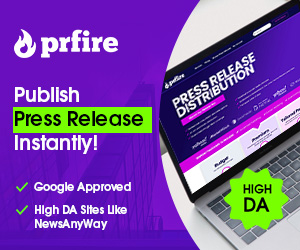Authenticity is everything in marketing today, and that makes word-of-mouth reach more valuable than ever. And who better to expound on the subject than Julie Roehm and Fizz CEO Ted Wright, who dissected the topic on a recent episode of Roehm’s podcast, “The Conversational Podcast.”
The duo are both heavy hitters in the marketing space. Roehm has made a career of executing transformations at several of the world’s biggest brands, including Ford, DaimlerChrysler, and SAP. She’s a member of the Advertising Hall of Fame and a recipient of Marketer of the Year by BrandWeek, among many other accolades. Her recent role as a digital marketing and strategy consultant for Gorilla Grip highlights her continuing influence.
“I believe that storytelling is one of a marketer’s best tools,” Julie Roehm states on her website. “I’ve always been passionate about storytelling and use it every day but especially at work because stories are memorable, they are personal, and most importantly, they sell.”
Joining her on the podcast was Ted Wright, CEO of the word-of-mouth marketing agency Fizz. Called the pioneer of this type of marketing, he’s led one of the largest word-of-mouth marketing firms in the world since 2001.
Roehm and Wright discussed what word-of-mouth marketing means today and offered invaluable insights into the nuances and effectiveness of word-of-mouth strategies.
The Science of Word-of-Mouth Marketing
Unlike traditional marketing tactics, word of mouth relies on authenticity and the organic spread of information to create a lasting impact. But for many marketers, word-of-mouth success is elusive, given a lack of control over the medium: people’s mouths.
They think that successful word-of-mouth marketing requires a blend of skill and luck — like being in the right place at the right time. But Wright has repeatedly demonstrated that word-of-mouth campaigns can be engineered and results can be predicted.
“It’s a process, and that process is replicable,” Wright said. He explained Fizz’s systematic approach to getting results. “[Word of mouth] operates in the same way that viruses spread between people. Illness is passed mostly between people who know each other. You can trace it. That exact same science is used to trace word of mouth. At Fizz, we actually have a map.”
The science of word of mouth is about understanding how stories spread among people who know each other. Fizz has spent over two decades studying and documenting patterns and using them to their advantage.
Fizz Spreads the Word
At Fizz, Wright has used his strategy to churn out word-of-mouth wins for clients like Coca-Cola, Audi, and Intel.
A recent example is Fizz’s work with the American Dairy Association of Ohio. “The American Dairy Association came to us and said, we’d like to sell more chocolate milk,” Wright shared.
In a seemingly left-field move, Fizz decided to position the beverage as a beneficial drink for athletes. To do this, it leveraged the natural qualities of chocolate milk, such as its high water content and amino acids. It informed consumers that chocolate milk contains a unique compound that strips lactic acid from muscles, making it an ideal post-exercise drink.
Fizz made sure to build factual information and credibility into the campaign so people would have the tools to counteract naysayers when debate was inevitably sparked. Then, it began to spread the word organically.
Julie Roehm told Wright, “You leveraged athletes, you leveraged coaches, and it was about refueling the body and making athletes better, more. It’s not of the moment. It’s not a meme. It’s, you know, it’s lasting.”
The result? Chocolate milk sales skyrocketed by as much as 475% and the overall milk consumption in Ohio increased by 12% to 28% across markets.
Catering to Customer Experiences
One thing that Ted Wright and Julie Roehm have in common is their obsession with customer experiences. Understanding the customer’s desires more than just their needs is crucial to building word-of-mouth campaigns around topics that people actually want to discuss.
Julie Roehm has served as chief experience officer at multiple firms and knows that relating to a customer beyond a sales perspective is essential to driving engagement.
In another example, Fizz turned a seemingly mundane product (a vacuum cleaner) into a topic of conversation among parents and pet owners. Wright met with scientists at the company, only to find they were disappointed that the machine would only pick up about 97% of shed dog hair. “I was like, obviously, dude, you have never lived with a golden retriever. Now, if you’re a scientist and you’re looking for 100% and you’re only getting 97.2% [that’s not optimal]. But for the other 99.9998% of people, we’re like, ‘Oh, this is dope. What is this thing called?’
“Now, probably a third of their business is pets.”
By focusing on the vacuum’s ability to remove pet hair, Fizz transformed a regular household appliance into a must-have tool for specific target audiences.
Word of Mouth: More Important Than Ever
At the end of the podcast, Julie Roehm and Ted Wright stressed the enduring relevance of word-of-mouth marketing in a digital age. As traditional advertising faces skepticism, the authenticity and personal connection of word of mouth have become even more critical.
According to Wright, the mediums of communication may change over time, but factors that make a word-of-mouth campaign work do not. Fizz’s decadeslong track record of success offers a blueprint for anyone looking to harness the power of authentic, story-driven marketing strategies.
Listen to the entire conversation between Julie Roehm and Ted Wright on “The Conversational Podcast” at julieroehm.com.










